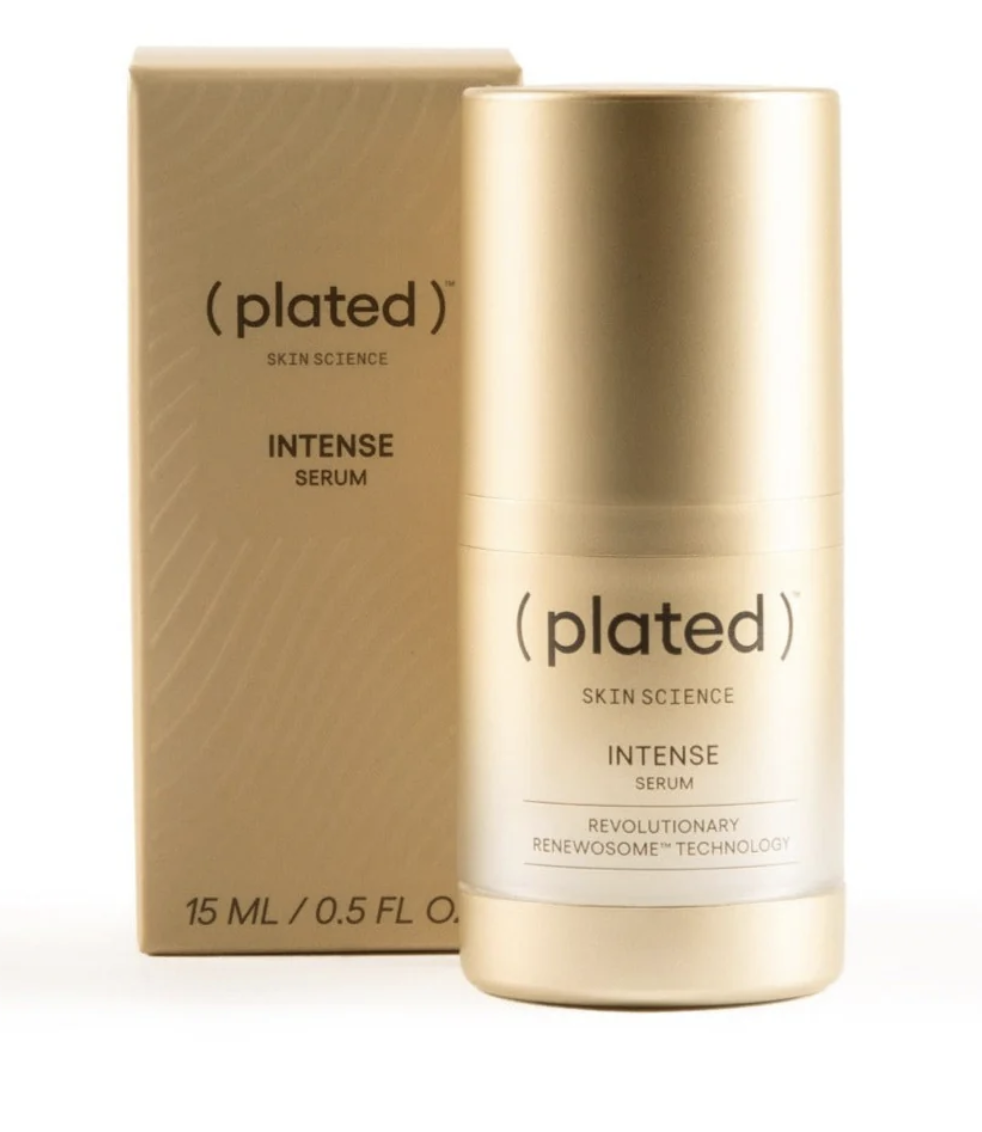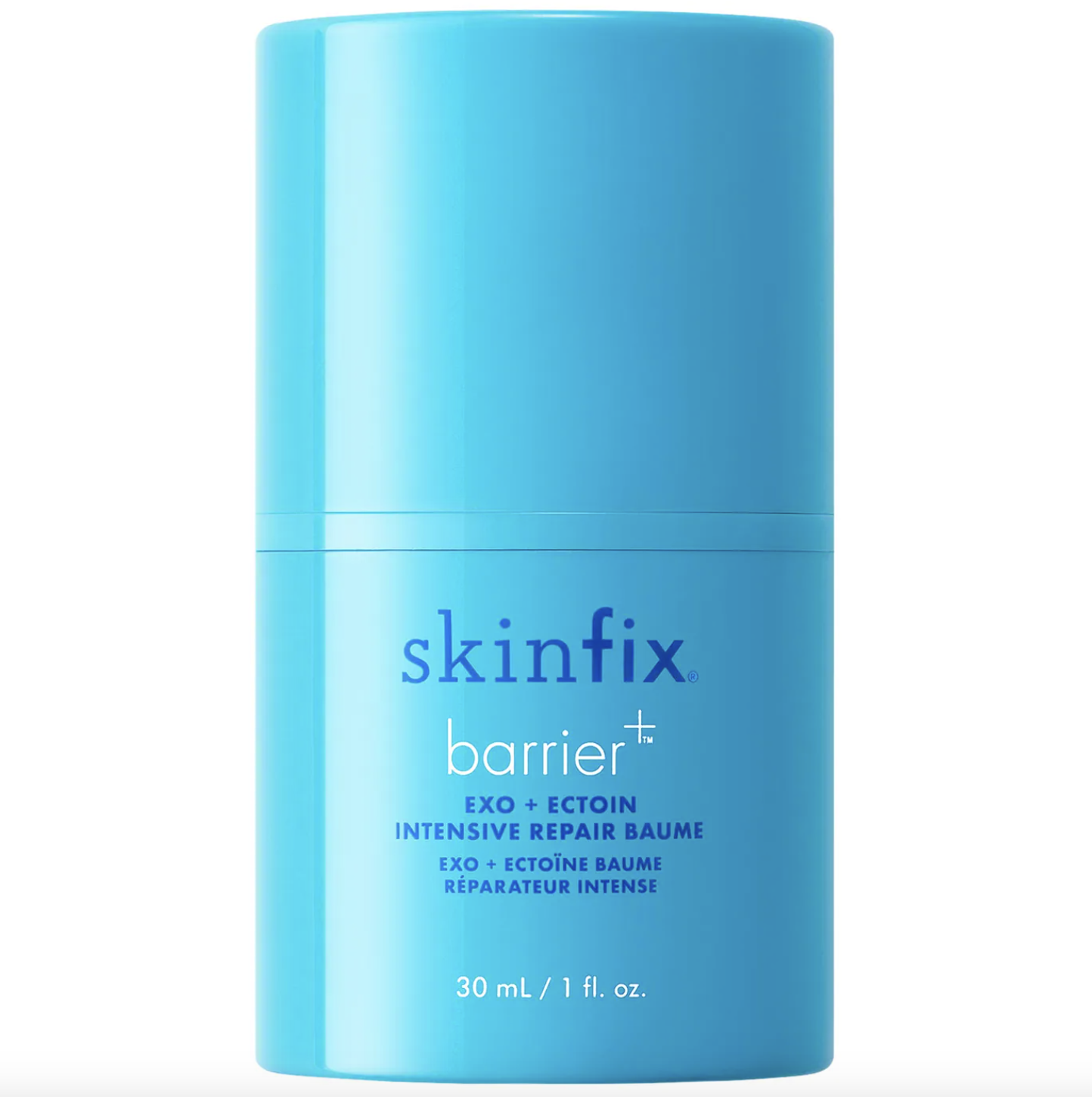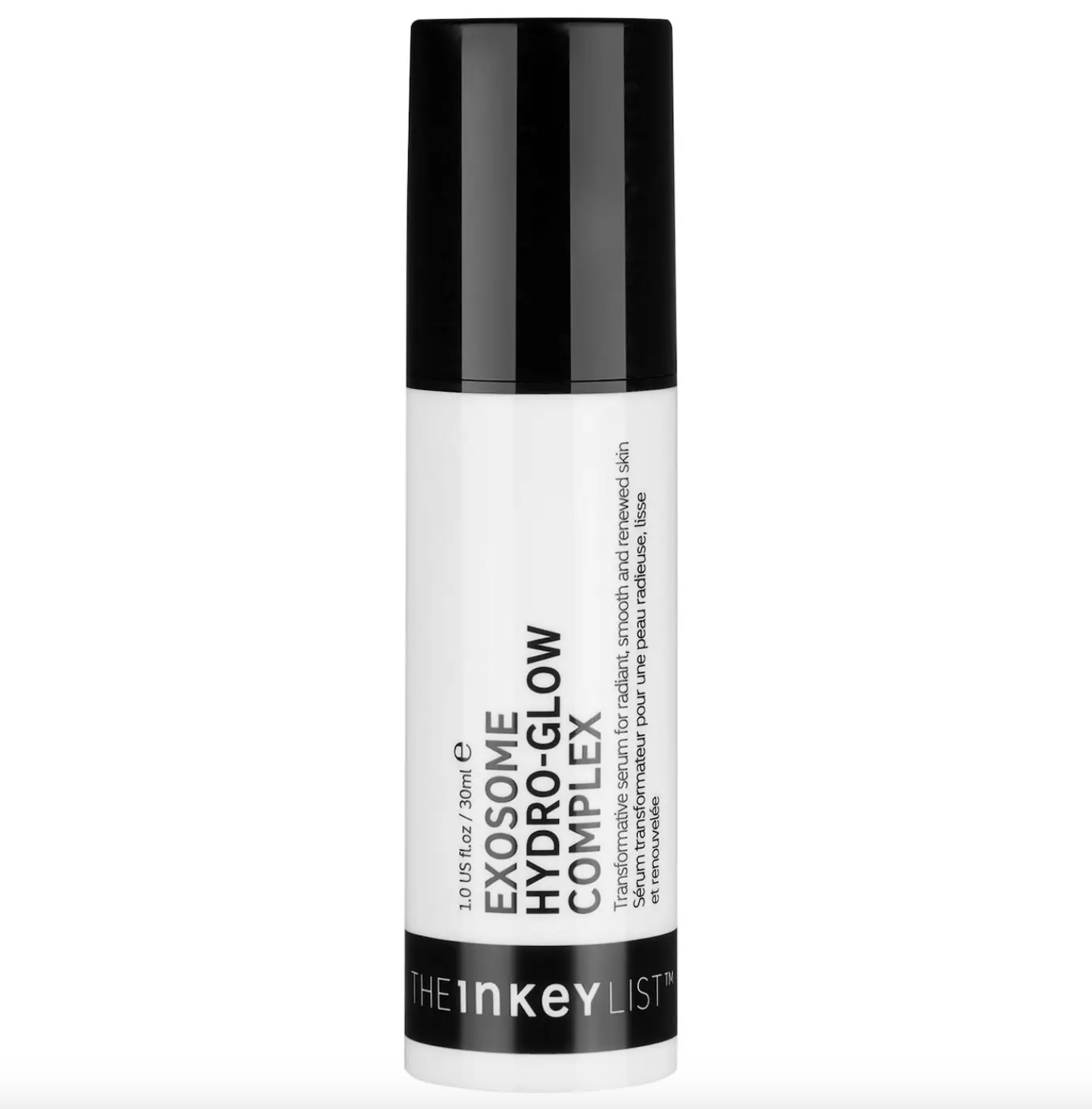If you’re on the beauty side of social media, there’s a strong chance you’ve heard of exosomes. Though they’re already a popular medical-grade treatment in Korea, exosomes are now quickly flooding the at-home skin care space in the United States. It’s the latest trend on what seems like every skin care brand’s radar, and because of its promise of youthful, glowing skin, reduced inflammation and better overall skin health, you may even be able to replace your current retinols and hyaluronic acid serums with it.
“Exosomes are skin care gold for brands looking to market innovation,” says Dr. Mona Gohara, a board-certified dermatologist at Dermatology Physicians of Connecticut. Though they’re buzzy, it’s worth noting that no exosome product is currently approved for cosmetic use by the U.S. Food and Drug Administration. “The potential is real, but regulation hasn’t caught up,” says Gohara.
But are exosomes really a “cure-all”? I spoke to board-certified dermatologists to find out exactly what they can do for your skin and whether they’re actually effective.
Selected.
Show 0 More
Show Less
Want more from NBC Select? Sign up for our newsletter, The Selection, and shop smarter.
What are exosomes?
Exosomes are tiny, naturally-occurring vesicles released by nearly all types of cells — including skin cells, stem cells and platelets — that carry and protect proteins, lipids and genetic material. Think of exosomes as microscopic delivery trucks: Each one carries a “package” of proteins, lipids, growth factors and microRNA that help regulate how nearby cells behave.
As it pertains to skin care, exosomes facilitate cell to cell communication and give a pathway for skin cells to “talk” to each other, according to board-certified dermatologist Dr. Corey L. Hartman. This results in them acting as messengers that deliver instructions to other cells to help calm inflammation, repair damaged tissue and increase collagen and elastin production (which usually deplete as we age, leading to sagging, wrinkly skin), says Gohara. “Think of them as a high-tech signaling system that coordinates skin regeneration,” she says. Meanwhile, the genetic material that the exosomes carry in their “delivery trucks,” like mRNA, influences gene expression, which essentially reprograms skin cells to behave more like younger, healthier cells, says Dr. Asmi Berry, board-certified dermatologist and beauty biohacker in Los Angeles.
You’ll typically find exosomes in serums because they penetrate deeper into the skin and are more stable in low-water, minimal-ingredient formulas, says Berry. While you can find them in moisturizers and creams, too, these formulations may weaken their effects, she says.
Are exosomes safe and FDA approved?
Exosome research is still in its early stages, and the FDA has not yet approved any exosome products. (FDA approval means the agency has determined through clinical trials that the product is safe and effective for its intended use). However, cosmetic products and ingredients (other than color additives) don’t need FDA approval before they go on the market, so you can find skin care serums and moisturizers with exosomes in them. Despite this, there are still laws and regulations brands must follow.
“Because cosmetic treatments do not require FDA approval to go to the market, there is no requirement for the topical product to be proven as an effective treatment,” says Green. In fact, the FDA issued a warning in 2020 against regenerative medicine products, specifically products containing stem cells and exosomes, because people are commonly misled about their efficacy.
Since skin care doesn’t require FDA approval, any brand can sell products with exosomes in them; To ensure any topical you’re applying or buying is actually safe, always use a reputable brand that’s clear about its ingredients and where it sources them, says Green.
Best exosome serums of 2025
Below, I rounded up skin care products with exosomes that are dermatologist-recommended or from brands we’ve previously covered.
Plated Intense Serum
Plated’s serum, which comes recommended by Korman, is made from human-derived exosomes, so it’s more effective than those derived from plants or animals. It’s gentle enough for all skin tones, and made specifically for those looking to target redness, inflammation and fine lines, according to the brand.
Plated uses a safe and ethical process for extracting human platelets, which involves working with compliant blood banks in the U.S., according to the brand. In addition to platelet-derived exosomes, the serum has hyaluronic acid and antioxidants to help address dark spots, redness and fine lines and wrinkles, according to the brand.
You can use the serum once a day (either at night or in the morning) after cleansing your skin and before the rest of your skin care routine. Make sure you give the product a few minutes to fully absorb before applying your other products.
Skinfix Exo + Ectoin Retinol-Alternative Intensive Skin Barrier Repair Baume
This Skinfix baume, which has a thicker texture than a serum, is a favorite of both Gohara and Hartman because it’s fragrance-free and great for sensitive skin. “It combines exosomes with ectoin, a powerful stress-protection molecule, to deeply hydrate, soothe and visibly strengthen the skin barrier, especially for sensitive or compromised skin,” says Gohara. It leverages exosomes not just for reducing fine lines and wrinkles, but for skin resilience, too, according to Gohara. Apply one to two pumps on your face, neck and chest at night after cleansing and before moisturizing. You can also use it as an overnight treatment mask in place of your nightly moisturizer, according to Skinfix.
The Inkey List Exosome Hydro-Glow Complex Serum
If you’re looking for a budget-friendly option, this serum has plant-derived exosomes that help to boost collagen production. I’ve used a pea-sized amount of this serum every night for the past two weeks after the brand sent me a bottle to try out, and it’s had a noticeable impact on how glowy and hydrated my skin looks first thing in the morning. I combine it with a hyaluronic acid serum and a gentle retinol, which has been a great, sensitive skin-friendly combination as someone with rosacea-prone skin. You can use it morning and night — apply it on clean skin and can follow it with any preferred treatments (like retinol), moisturizer and SPF, according to the brand.
Medicube One Day Exosome Shot Serum
This serum from Korean beauty brand Medicube is an OTC and non-invasive alternative to microneedling, according to the brand; it’s a spicule serum, which means the formula has microscopic, needle-like structures that are coated in exosomes. You can’t see the tiny liquid microneedles, but you’ll probably feel some sharpness and tingling when you apply it, according to the brand. It penetrates your pores more deeply than a typical topical formula and has chemical exfoliants like AHAs, niacinamide and amino acids to help improve skin texture, according to Medicube. Use this at night after cleansing and follow it with a moisturizer. It’s also highly rated, with a 4.4-star average rating from 2,509 reviews on Amazon.
Dr. Barbara Sturm Exoso-Metic Face Serum
Though the price tag is the highest on this list, this serum is an excellent option for those with mature skin who are looking to get rid of fine lines and wrinkles. It has lab-derived exosomes and growth factors paired with vitamin E to plump, firm and protect skin from free radical damage, according to the brand. You can apply it to your face, neck and chest morning and night, but let it dry for a few minutes first before following it up with a moisturizer. It has a 5-star average rating from 48 reviews at Dr. Barbara Sturm.
How do exosomes in skin care work?
There are two main types of exosomes skin care: in-office treatments and at-home topicals. Topical exosome formulas work well, but they don’t always penetrate the skin enough to provide the best regenerative benefits (like stimulating collagen production), says Hartment. That’s why many dermatologists prefer to use exosomes alongside in-office treatments like microneedling, which involves a small needled device that makes microchannels in the skin to help push serums (like exosomes, for example) deeper in, says board-certified NYC cosmetic dermatologist Dr. Michele Green.
“When delivered through open microchannels, their effects, especially on collagen production, are likely more pronounced,” says Gohara. “Medical-grade exosomes are used to supercharge healing, reduce post-procedure inflammation and stimulate collagen formation.” But again, while microneedling with exosome serums isn’t necessarily unsafe, exosome treatments are not yet FDA approved for skin care use.
Most over-the-counter topical exosome serums use lab-made or plant-derived exosomes, which are safe and hydrating, but they don’t have the same regenerative benefits you would get from human-derived exosomes (which are typically used in doctors’ offices), says Berry. Keep in mind serums with human-derived exosomes are very expensive, usually costing above $100.
What is exosome therapy?
Exosome therapy (usually known as exosome stem cell therapy) is an in-office treatment that involves applying exosome serums derived from human stem cells or platelets during or after skin treatments like microneedling, laser resurfacing or radiofrequency, says Gohara. For aesthetic purposes, dermatologists will often turn to dermal fibroblast exosomes, which signal the fibroblasts to produce more collagen and elastin, says Green.
Exosomes work well when they’re injected into the skin, but there are safety concerns with the practice, including scarring, irritation or infections (in addition to not enough evidence of efficacy), according to Hartman and Dr. Joshua Korman, board-certified plastic surgeon and founder of Korman Plastic Surgery. Dermatologists I spoke with recommend sticking to over-the-counter serums by reputable brands for at-home use, and microneedling performed by a licensed dermatologist or skin care professional.
Are exosomes effective?
It’s no surprise brands are continuously looking for new, buzzy ingredients to incorporate into products, and exosomes manage to tap into the balance of regenerative science and natural healing. Though exosomes are promising, are they going to revolutionize topical skin care? Hartman doesn’t think so. “There isn’t enough research to show that exosomes perform at the same level, or better, than highly-researched and proven regenerative skin care ingredients like retinol, peptides, ceramides and niacinamide,” he says.
“I see the most potential in medical-grade exosome skin care, especially products that use purified, lab-cultured exosomes post-treatment to support healing, collagen production and skin rejuvenation,” says Berry. “Many mass-market products just borrow the word ‘exosome.’ Unless the exosomes are biologically active and clinically sourced, they’re unlikely to deliver true regenerative results.” That means don’t expect dramatic results from plant-derived exosomes, though they can offer gentle skin repair and hydration, says Berry.
As mentioned, cosmetic topicals don’t need to undergo the strict testing associated with receiving FDA approval, which makes their effectiveness unclear, says Green. Also, exosomes need specific conditions to remain stable and active, so quality control is everything — whether exosomes remain stable in topical, over-the-counter formulas is still unknown (and fairly unlikely), experts say. However, that doesn’t completely diminish their effectiveness.
The final verdict? Exosomes have several topical benefits, but research is still in its early stages. “They’re not miracle workers on their own, but when used correctly, especially after procedures or combined with proven actives, they can be a powerful way to enhance your skin’s recovery and glow,” says Berry.
How do exosomes compare to other regenerative skin care ingredients?
Regenerative skin care refers to ingredients and formulas that focus on healing and rejuvenating the skin by improving elasticity, reducing fine lines and wrinkles and boosting collagen, says Korman. Exosomes are usually compared to peptides and growth factors, two ingredients that have been the stars of regenerative skin care for years. The main difference is that exosomes have a broader spectrum of benefits.
“It’s like a flip phone versus a smartphone: They don’t just stimulate one type of cellular activity — they’re like a full care package that tells skin cells to multiply, produce collagen, reduce inflammation and even protect against oxidative stress,” says Gohara. “They’re essentially smarter and more comprehensive, but still relatively new to the commercial skin care scene.”
But comparisons can’t be made quite yet; researchers need to study exosomes more before determining if they’re “better” or more effective than other regenerative ingredients, says Green.
Frequently asked questions
How often should you apply skin care with exosomes?
You can apply most exosome-containing products daily. When you apply them regularly, they can help improve hydration, barrier strength and long-term skin resilience, says Gohara.
How long does it take to see results from exosomes?
You’ll typically see reduced redness or an increased glow within a week of using exosome-containing products regularly. However, deeper changes like improved skin texture and firmness or fewer fine lines, usually take four to eight weeks, says Gohara.
“Exosomes encourage cell regeneration as well as collagen production, and both processes take time to have a visible impact on the skin,” says Green.
Can you combine exosomes with other active ingredients?
You can combine exosomes with actives like retinol, peptides and vitamin C, but they aren’t a replacement for gold-standard ingredients like retinoids, says Berry. That’s because these ingredients work differently. “Retinol speeds up cell turnover, peptides act as messengers to stimulate collagen and exosomes create a more supportive environment for the skin to repair itself,” says Berry. In fact, exosomes can actually make the skin more resilient and better able to tolerate active treatments.
“I wouldn’t recommend replacing products with antioxidants, retinol or sunscreen (which is what I call the Holy Trinity of skin care) with exosome products,” says Hartman.
Who should use exosomes?
Almost anyone can use serums with exosomes in their skin care routine. The people that’ll benefit most are those with mature skin since the body’s ability to naturally reduce inflammation and produce collagen and elastin slows as we age, says Hartman.
However, steer clear if you’re pregnant or breastfeeding. “We don’t have enough safety data yet, so I recommend against using exosomes during pregnancy or breastfeeding, just like we do with retinoids,” says Berry. “It’s better to stick to proven, gentle options during this time.”
Meet our experts
At NBC Select, we work with experts who have specialized knowledge and authority based on relevant training and/or experience. We also take steps to ensure all expert advice and recommendations are made independently and without undisclosed financial conflicts of interest.
- Dr. Mona Gohara is a board-certified dermatologist at Dermatology Physicians of Connecticut.
- Dr. Corey L. Hartman is a board-certified dermatologist and founder of Skin Wellness Dermatology in Birmingham, Alabama.
- Dr. Asmi Berry is a board-certified dermatologist and beauty biohacker at BHSkin Dermatology in Los Angeles.
- Dr. Michele Green is a board-certified cosmetic dermatologist based in New York City.
- Dr. Joshua Korman is a board-certified plastic surgeon and founder of Korman Plastic Surgery based in Northern California.
Why trust NBC Select?
I’m an updates editor at NBC Select who has covered beauty and personal care for over five years. For this article, I spoke to five board-certified dermatologists about exosomes in skin care products and what they can do for your skin. I also rounded up their recommendations for serums with exosomes to shop, as well as NBC Select editor-favorite products.
Catch up on NBC Select’s in-depth coverage of tech and tools, wellness and more, and follow us on Facebook, Instagram, Twitter and TikTok to stay up to date.


